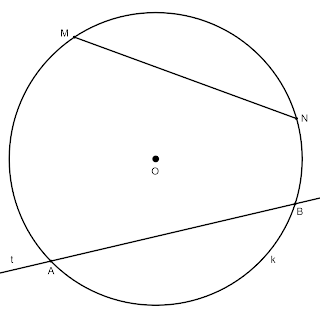Decomposing a polynomial into factors by applying the formulas for short multiplication
Each of the abbreviated multiplication formulas we have looked at so far is an example of representing a polynomial as a product, for example $a^2-b^2=(a-b)(a+b)$, on the left hand side we have the polynomial $a^2-b^2$ and on the right hand side the product of factors $(a-b)(a+b)$. In the same way, $a^2\pm 2ab+b^2=(a\pm b)^2$. Clearly we see that again we have a polynomial on the left hand side of the equality and a product on the right hand side. Let's write down the other formulas with the left and right parts swapped $a^3\pm 3a^2b+3ab^2\pm b^3=(a\pm b)^3$ and $a^3\pm b^3=(a\pm b)(a^2\mp ab+b^2).$ We'll see below how we can apply these equalities to specific problems. Problem 1 Decompose the polynomial $4x^2-y^2$ into factors. Solution: In our case $a=2x$ and $b=y$, therefore $4x^2-y^2=(2x-y)(2x+y).$ Problem 2 Decompose the polynomial $p^2-(x+y)^2$ into factors.$ Solution: Again apply $a^2-b^2=(a-b)(a+b)$, in this case $a=p$, $b=x+y$, hence $[p-(x+y)](p+x+y)=(p-x-...

.png)